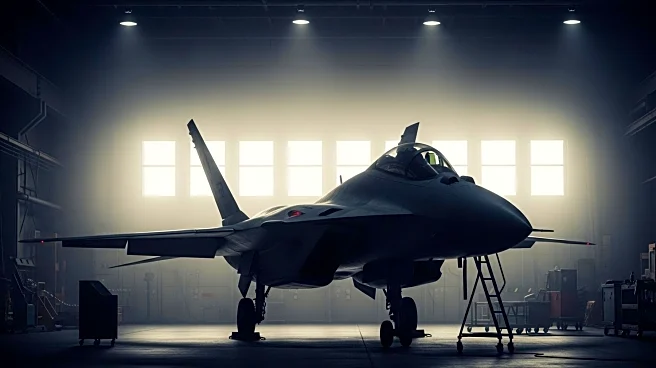What's Happening?
Workers at Boeing Defense have rejected the company's latest contract offer, prolonging a strike that has now entered its seventh week. The strike involves approximately 3,200 members of the International Association of Machinists and Aerospace Workers (IAM) District 837, who are responsible for assembling Boeing's fighter jets and other military products in the St. Louis area. The union members initially went on strike on August 4 after turning down a previous offer. Boeing has attempted to mitigate the impact of the strike by employing non-union workers. The rejected contract proposal included smaller increases to retirement plan contributions and a smaller ratification bonus compared to a contract approved last year by IAM District 751 members in the Northwest. Boeing Defense Vice President Dan Gillian expressed disappointment over the rejection, noting that the company had offered a five-year deal with an average wage growth of 45%. Despite the rejection, Boeing plans to proceed with hiring permanent replacement workers.
Why It's Important?
The ongoing strike at Boeing Defense highlights significant labor tensions within the aerospace industry, particularly concerning worker compensation and benefits. The refusal of the contract by the union members underscores the dissatisfaction with the terms offered, which they perceive as inadequate compared to previous agreements. This labor dispute could have broader implications for Boeing's operations, potentially affecting production timelines and delivery schedules for military products. The strike also reflects a larger trend of labor activism across various industries in the U.S., where workers are increasingly demanding better pay and working conditions. The outcome of this dispute could influence labor negotiations in other sectors, as companies and unions observe the developments at Boeing Defense.
What's Next?
With no further talks scheduled, the situation remains uncertain. Boeing's decision to hire permanent replacement workers could escalate tensions with the union, potentially leading to prolonged disruptions. The union may seek to increase pressure on Boeing through public campaigns or by garnering support from other labor organizations. The resolution of this dispute will likely depend on whether Boeing and the union can reach a compromise that addresses the workers' demands while maintaining the company's economic framework. Stakeholders, including government officials and industry leaders, may also become involved if the strike continues to impact Boeing's production capabilities.












